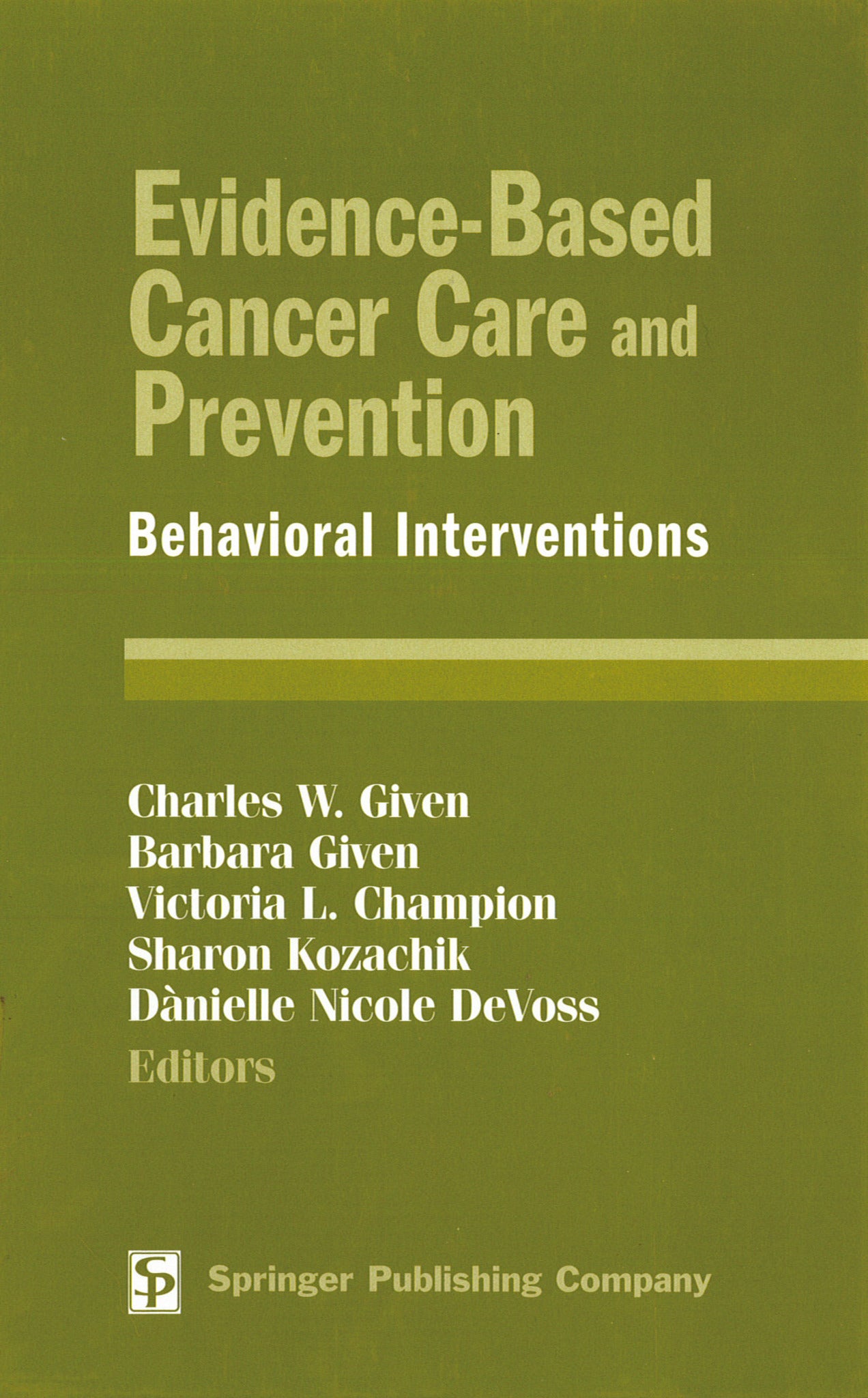We're sorry. An error has occurred
Please cancel or retry.
Evidence-Based Cancer Care and Prevention

Some error occured while loading the Quick View. Please close the Quick View and try reloading the page.
Couldn't load pickup availability
- Format:
-
01 March 2003

The goal of behavioral oncology is to understand and explain the role and impact of behaviors at all phases in the cancer trajectory -- from prevention and detection to diagnosis and early treatment, to survivorship, recurrence, and/or death. Each chapter includes summaries of recent research on cancer-related behavioral interventions, discussions of the studies summarized, and suggestions for future research. The book is a product of collaboration among members of the Behavioral Cooperative Oncology Group of the Mary Margaret Walther Program for Cancer Care Research at the Walther Cancer Institute in Indianapolis, Indiana.


- Preface
- Introduction: The State of the Knowledge of the Behavioral Intervention Research in Cancer Care, C.W. Given
- Cancer Prevention Through Physical Activity, D. Haire-Joshu and M.S. Nanney
- Cancer Screening, V.L. Champion, S.M. Rawl, and C.S. Skinner
- Smoking Cessation in Cancer Patients: Never too Late to Quit, E.R. Gritz, D.J. Vidrine, and A.B. Lazev
- Decision Aids for Cancer-related Behavioral Choices, C.S. Skinner and R.B. Giesler
- Psychological Interventions for Cancer Patients, B.L. Andersen
- The PRO-SELF© Program: A Self-care Intervention Program, M.J. Dodd and C. Miaskowski
- Cancer-related Fatigue, V. Mock
- Pain Management, C. Miaskowski
- Complementary and Alternative Therapy Interventions Used by Cancer Patients, G. Wyatt
- Family Caregiving Interventions in Cancer Care, B. Given, et al.
- Interventions at the End of Life, B. Ferrell and B. Hastie
- Conclusion: The Future of Behavioral Intervention Research in Cancer Care, C.W. Given, D.N. DeVoss, and B. Given
Acknowledgements



